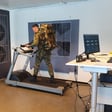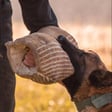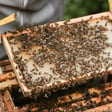
Bronson - Geotechnical Engineer
To say Bronson has an important job is an understatement. When something is built, the foundation is where a project can succeed or fail. Making sure that the soil, the water, gravity and materials all operate cohesively is vital to a projects success. Enter the Geotechnical Engineer. Bronson gets new puzzles to solve on a regular basis and he goes to work calculating risk, ensuring materials meet the desired specifications and that all tolerances are within spec. The project may be in an earthquake area, the soil may be sandy or muddy, there are numerous aspects of a projects foundation to consider. If you think engineering is a career path you want to pursue, this area of specialization may be just the one you're looking for. Thanks Bronson!
If you would like to support the show, you can do so HERE. Thanks!



















